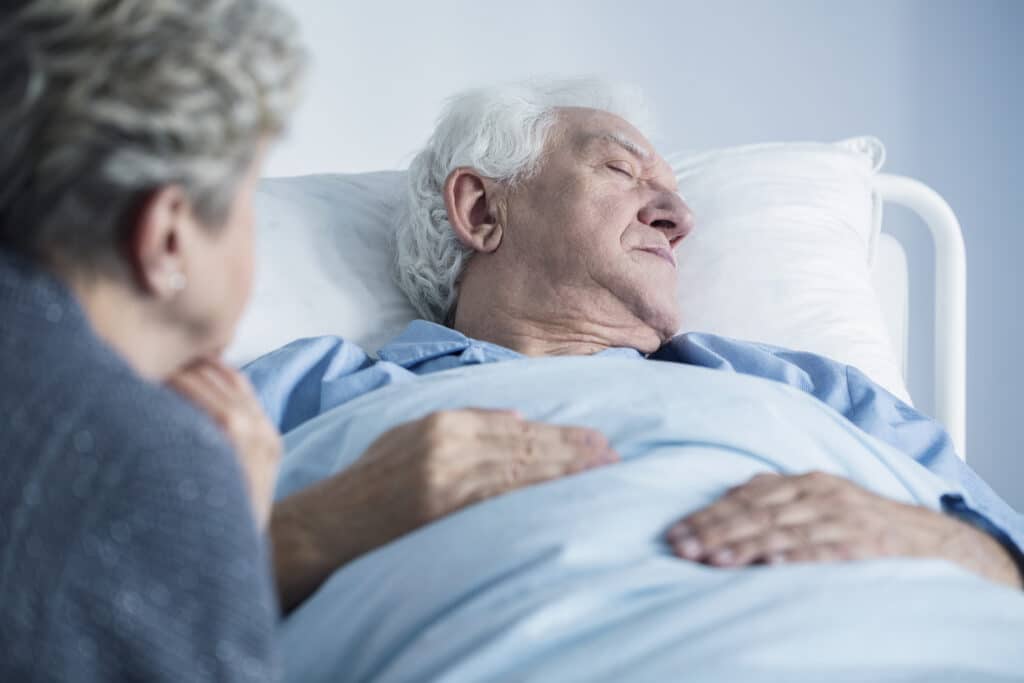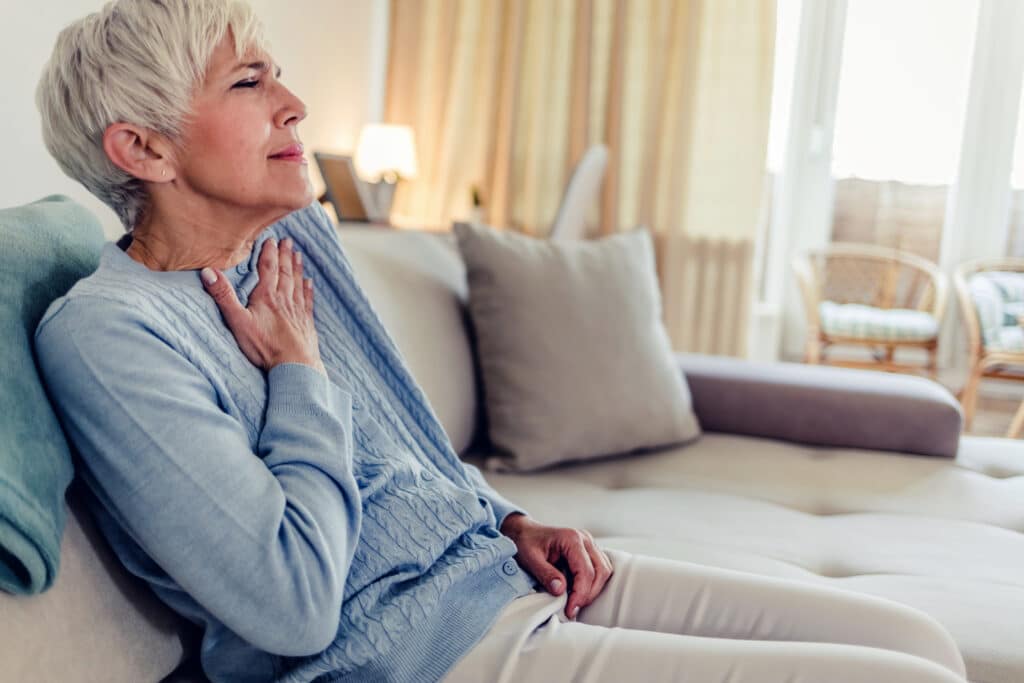
Pneumonia can be a serious illness in older adults. While people can get pneumonia at any time of the year, it is more common in the fall and winter months. Those over age 65 are more at risk for complications from pneumonia and are more likely to die from the infection than younger populations.
What causes pneumonia?
Pneumonia is a lung infection that causes inflammation of the air sacs in the lungs. One or both lungs may be affected. There are many different types of pneumonia, and the illness may be caused by bacteria, viruses, or fungi. The air sacs fill with fluid or pus, making it difficult for the person to breathe. Bacterial pneumonia is more common and may be more severe.
What are symptoms of pneumonia in the elderly?

Classic symptoms of pneumonia for most age groups include fever, chills, chest pain, shortness of breath, rapid breathing, a cough that brings up phlegm, and fatigue. Older adults may sometimes exhibit different symptoms such as loss of appetite, issues with balance, feelings of weakness and unsteadiness, inability to carry out daily activities, urinary incontinence, confusion, or delirium. Elderly persons may not run a fever; they may even have a lower than normal temperature.
Why are the elderly at higher risk?
Older adults often have weakened immune systems. This population is more likely to suffer from chronic medical conditions such as high blood pressure, heart disease, diabetes, or chronic obstructive pulmonary disorder (COPD). The elderly can also get pneumonia from extended hospital stays.
When should a doctor be seen?
Since pneumonia can rapidly become a serious infection in the elderly, early treatment is important. Older people should see a doctor when they have chest pain, difficulty breathing, new confusion or delirium, nails or lips with a bluish color, high fever or a lower than normal temperature, or a severe cough with mucus or blood.
Recommendations for Seniors
The CDC recommends older adults be vaccinated for pneumonia. Those who received an earlier pneumonia vaccine (PCV7 or PCV13) have the option to get the PCV20 vaccine. They can also get the PPSV23 vaccine after age 65. It’s also recommended that they get an annual flu vaccine because having the flu can increase the chance of getting pneumonia.
Renaissance Villages
All residents at Renaissance Villages have access to care staff 24/7. Nurses are on call 24/7 to meet the health needs of our residents. Transportation is available for residents needing to go to and from doctor’s appointments. Contact us for a tour of our living options.

